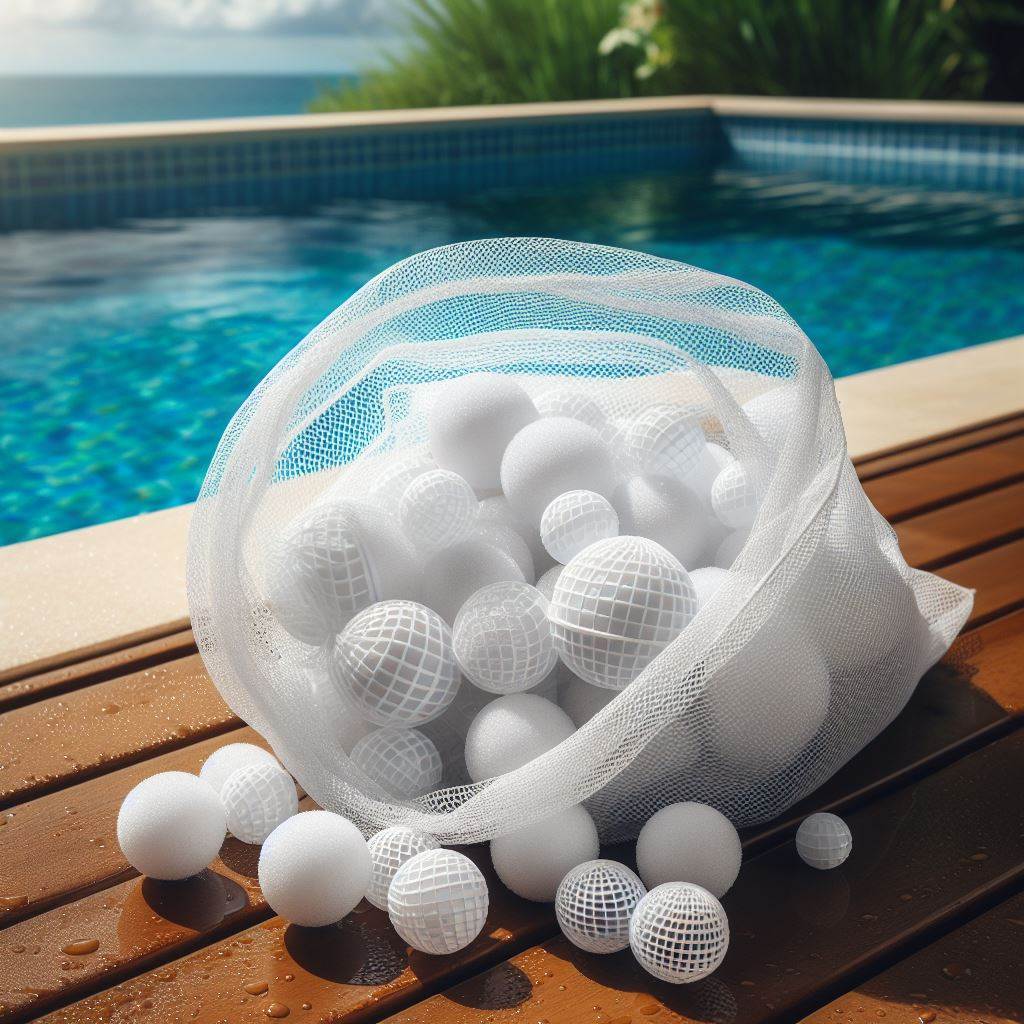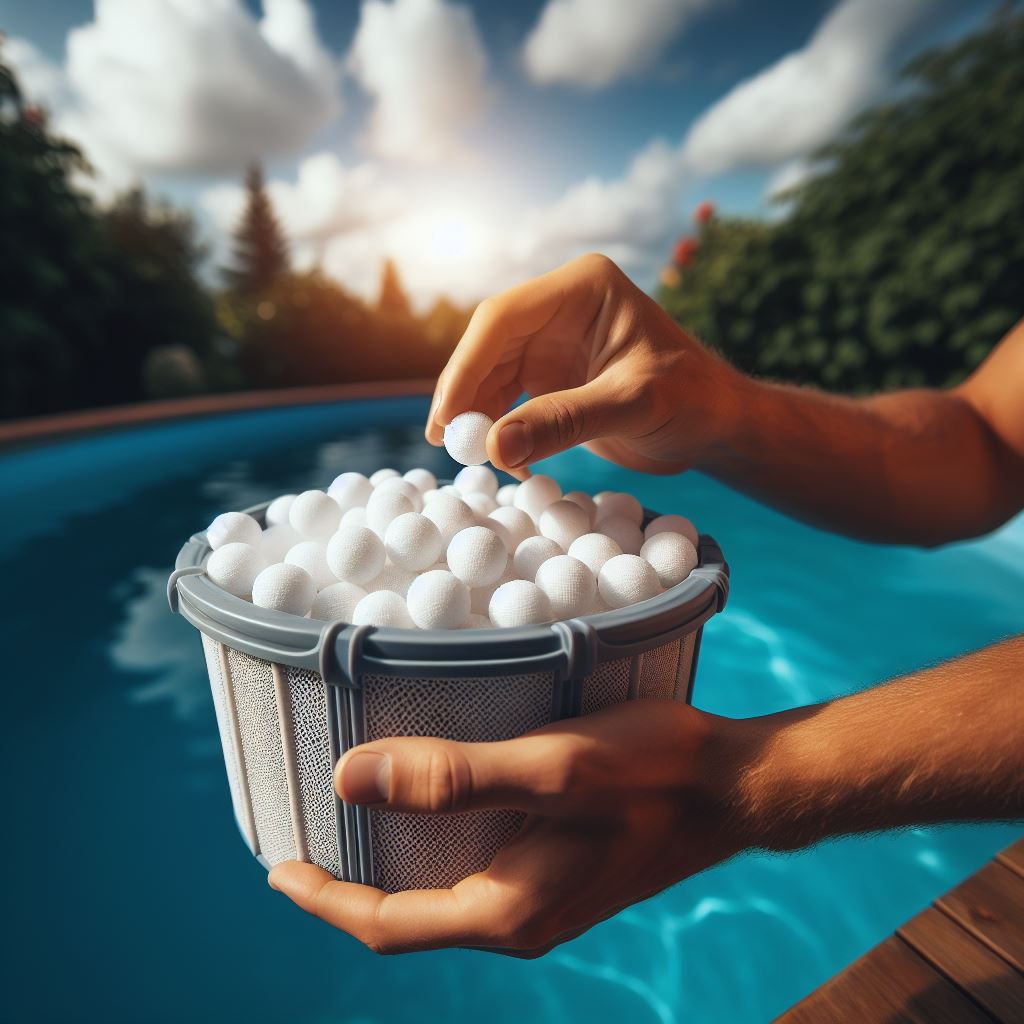Proper selection of filtration media is one of the key factors in ensuring pool water cleanliness in daily maintenance. Pool filter balls, a modern filtration medium, offer more advantages than traditional sand and gravel, such as higher filtration efficiency and easier maintenance. The choice of material for filter balls significantly impacts their filtering performance and durability. This article will discuss different materials for pool filter balls and provide recommendations for choosing the best material.

Common Materials for Pool Filter Balls
1. Polypropylene Filter Balls
Polypropylene is one of the most commonly used materials for filter balls. It is a lightweight plastic with good chemical stability and heat resistance. The main advantages of polypropylene filter balls are their low cost and easy availability. They can effectively remove fine particles from the water, improving the clarity of the water. However, polypropylene filter balls may not be as durable as other materials, and typically have a shorter lifespan.
2. Polyester Fiber Balls
Polyester fiber balls are another common filtration material, more robust than polypropylene balls, and can withstand more frequent cleaning and longer usage cycles. The microfine fibers of polyester better capture the tiny particles and impurities in pool water. Moreover, polyester material is highly resistant to chemical agents, making it suitable for use in pool water containing various chemical disinfectants.
3. Glass Fiber Balls
Glass fiber filter balls are an efficient filtration medium, offering higher filtration precision than polypropylene and polyester. Their main advantages are excellent corrosion resistance and long lifespan. Glass fiber materials can withstand repeated cleaning and high-load conditions, making them ideal for high-flow pool filtration systems. Although they cost more than polypropylene and polyester, considering their durability, they may be more economical in the long run.
Recommendations for Choosing the Best Material
When selecting the material for pool filter balls, consider the following factors:
Filtration Needs: Determine the required filtration efficiency and durability of the filtration media based on the size and usage frequency of the pool.
Chemical Stability: The disinfectants commonly used in pool water can damage filtration materials. Choosing materials that resist chemical corrosion can extend the lifespan of the filtration media.
Maintenance Costs: Evaluate the maintenance and replacement costs of filter balls made from different materials. Although some materials may have a higher initial cost, their longer lifespan and lower maintenance requirements might make them a more economical choice.
Environmental Impact: Considering environmental factors, choosing recyclable materials or those with minimal environmental impact is also an important consideration.
Conclusion
Correctly choosing the material for pool filter balls is crucial for ensuring the cleanliness and safety of pool water. Polypropylene, polyester, and glass fiber each have their unique advantages and suitable applications. Pool managers should select the most appropriate filter ball material based on specific usage requirements and budget constraints to achieve the best filtration results and economic benefits. Through such professional choices, the operational efficiency of pools and user satisfaction can be effectively enhanced.

